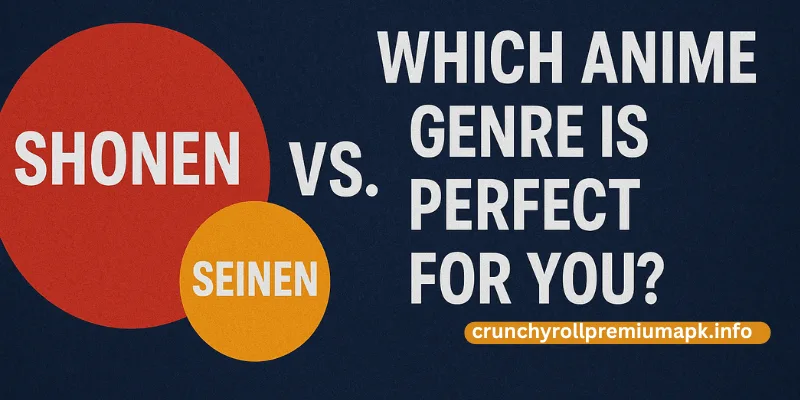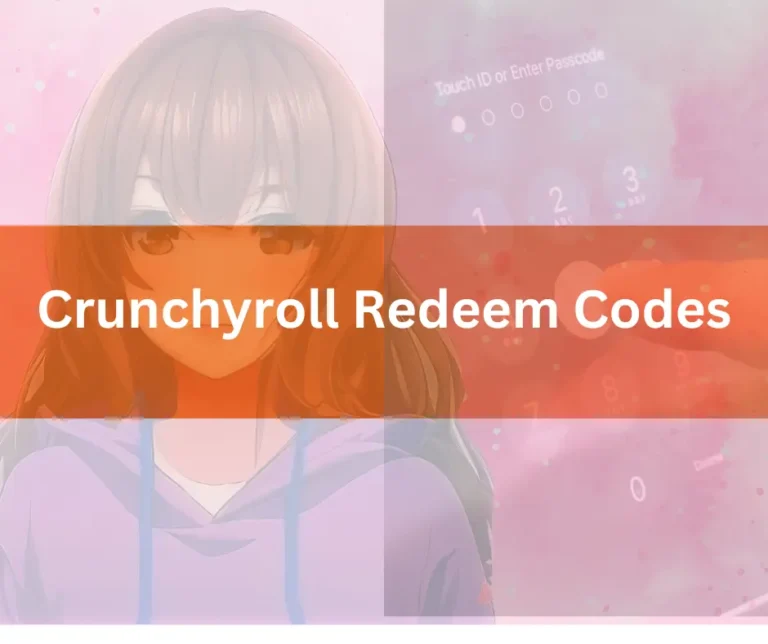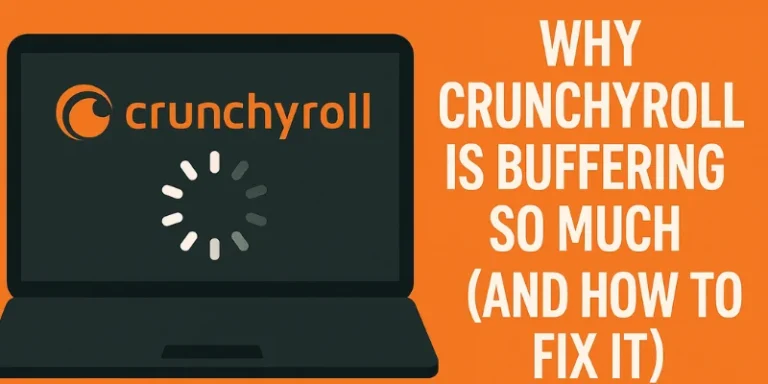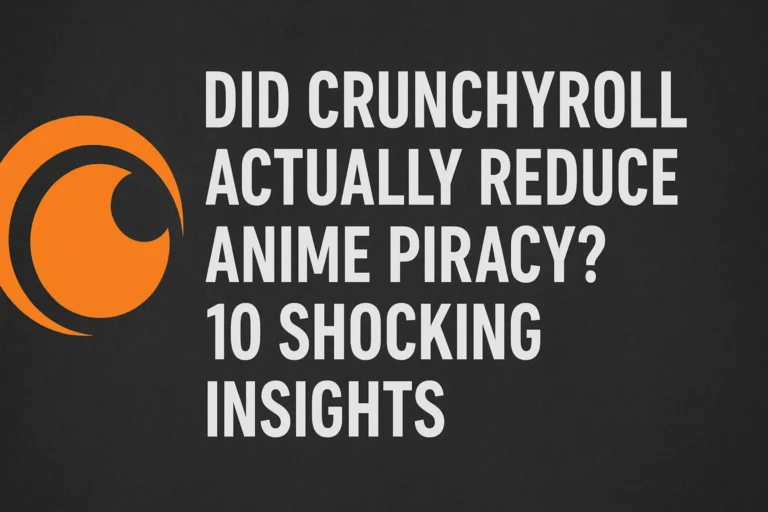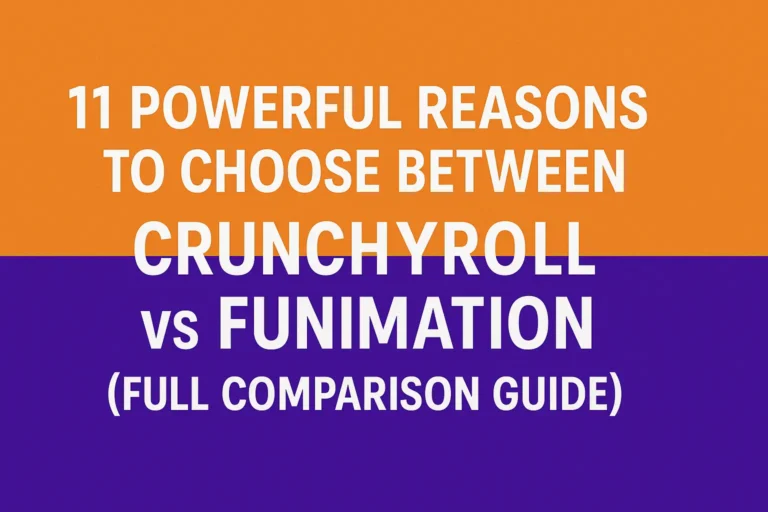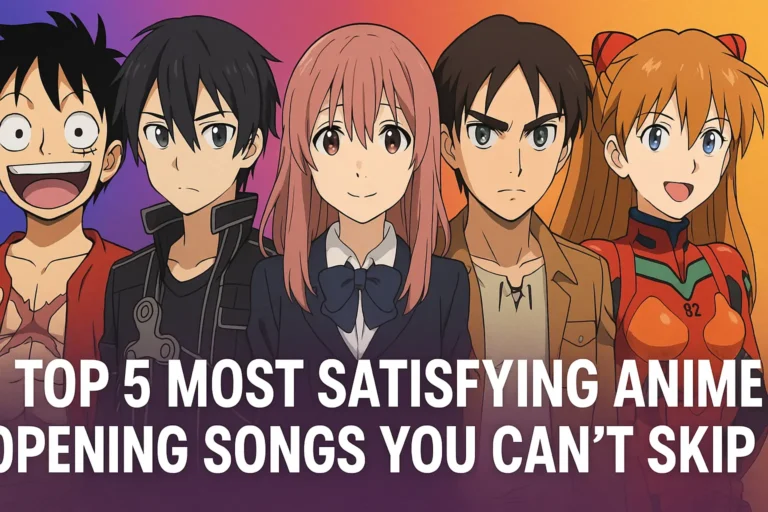Shonen vs. Seinen: Which Anime Genre is Perfect for You?
Ever found yourself torn between the high-energy battles of Naruto and the dark, psychological depths of Berserk? That’s the shonen vs. seinen debate in action. These two genres dominate anime, but they cater to wildly different tastes.
Whether you crave adrenaline-pumping action or thought-provoking narratives, understanding these genres ensures your next binge-watch hits the mark. Let’s dive into what makes each unique and how to pick your perfect match.
Defining Shonen – Action, Friendship, and Growth
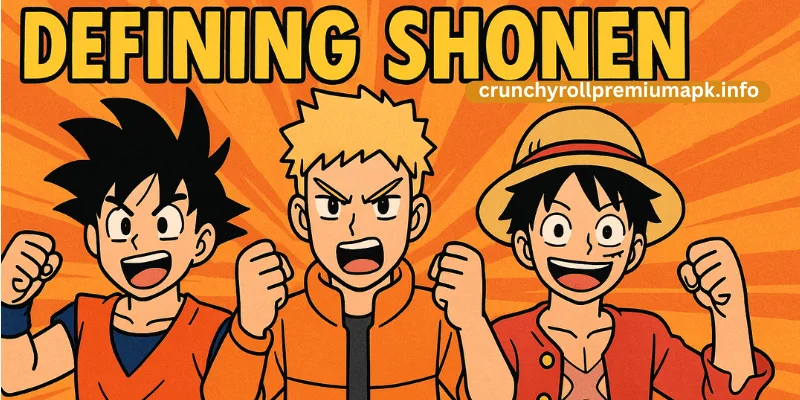
Shonen anime targets teens and young adults, bursting with explosive fights, camaraderie, and underdog triumphs. Think Dragon Ball Z’s Goku or My Hero Academia’s Deku—heroes who grow stronger through sheer willpower.
Core Themes of Shonen Anime
- Friendship & Rivalry: Bonds drive the story (Naruto, One Piece).
- Power-Ups & Training: Heroes unlock new abilities (Demon Slayer, Black Clover).
- Clear Morality: Good vs. evil is rarely ambiguous.
Best Shonen Anime Series to Start With
- Attack on Titan (dark but shonen-structured)
- Jujutsu Kaisen (supernatural battles)
- Hunter x Hunter (strategic depth)
Shonen’s optimism makes it a gateway for newcomers, but its predictability can frustrate mature viewers.
Defining Seinen – Gritty, Complex, and Mature
Seinen anime caters to adults (18+), exploring trauma, politics, and moral gray areas. Tokyo Ghoul’s Kaneki or Berserk’s Guts endure psychological torment, not just physical battles.
Core Themes of Seinen Anime
- Realism & Consequences: Actions have lasting impacts (Monster, Vinland Saga).
- Psychological Depth: Characters grapple with guilt, identity, and philosophy.
- Graphic Content: Violence, nudity, and mature themes are uncensored.
Top Seinen Anime Recommendations
- Parasyte (body horror meets philosophy)
- Psycho-Pass (dystopian crime thriller)
- Ghost in the Shell (cyberpunk introspection)
Seinen rewards patience, but its heaviness isn’t for everyone.
Battle Focus: Shonen’s Power-Ups vs. Seinen’s Strategy
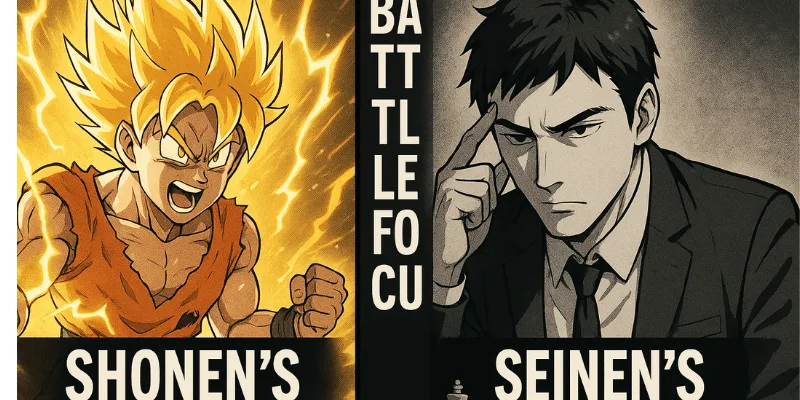
Shonen vs. seinen fighting styles are like comparing a fireworks show to a chess match.
In shonen, battles are colorful, emotional, and often feature power-ups or transformations (like Goku’s Super Saiyan forms). There’s a clear divide: good vs. evil. The journey is emotional, the rules are flexible.
But in seinen? It’s all about brains over brawn. Tactical combat reigns supreme. Whether it’s Monster‘s mind games or Berserk‘s brutal swordplay, battles focus on psychology, mortality, and survival.
Common tropes differ too: friendship and justice dominate shonen, while moral ambiguity defines seinen.
Character Development: Idealistic vs. Realistic
Shonen Protagonists
- Unwavering Optimism: Naruto never abandons his “ninja way.”
- Linear Growth: Strength = training montages (My Hero Academia).
Seinen Protagonists
- Flawed & Broken: Monster’s Tenma questions his Hippocratic oath.
- Moral Decline: Death Note’s Light becomes the villain.
Seinen characters mirror real human complexity—no easy redemption arcs.
Pacing and Storytelling Differences
Shonen: Episodic Arcs & Filler
Long runs (One Piece’s 1000+ episodes) include comedic detours.
Seinen: Tight, Slow-Burn Narratives
Steins;Gate builds tension meticulously; every scene matters.
Tip: Prefer binge-watching? Seinen’s shorter series (*13-50 eps*) avoid bloat.
Violence and Mature Content
Shonen tones down gore. Blood is stylized, and deaths are rare. Themes revolve around perseverance, not pain.
Seinen, on the other hand, does not flinch. The most violent seinen anime series, like Elfen Lied and Hellsing Ultimate, show dismemberment, psychological abuse, and existential horror.
Content restrictions are virtually nonexistent in seinen, giving creators creative freedom but also requiring emotional readiness from viewers.
Romance and Relationships
In shonen, romance is often hinted at, sometimes for laughs. Relationships stay innocent, rarely progressing past blushing.
Seinen treats love like real life. Messy, emotional, raw. Whether it’s complicated breakups or existential longing, relationships reflect adult realities.
If you prefer explicit, emotionally raw dynamics, seinen delivers.
Popular Examples to Test Your Taste
Shonen Starter Pack
- Demon Slayer (visually stunning)
- One Piece (adventure-heavy)
Seinen Starter Pack
- Vinland Saga (historical brutality)
- Monster (psychological masterpiece)
Hybrid Gems That Blur the Lines
Some masterpieces fall between the cracks. Attack on Titan began as shonen but evolved into a psychological seinen beast.
Hell’s Paradise is another fusion, combining action-packed vs psychological anime seamlessly.
These hybrids challenge both genres, appealing to a broad target audience for anime styles.
How to Choose Based on Your Mood
Here are 5 actionable tips to help you decide:
1. Feeling upbeat and energetic? Go for a shonen title with colorful action and hopeful themes.
2. Want something emotionally intense? Dive into a seinen series with layered plots.
3. Time-crunched? Pick a seinen mini-series — shorter but impactful.
4. Watching with younger siblings? Stick to lighthearted shonen anime recommendations.
5. Exploring adult themes? Choose the best anime genre for mature viewers — seinen.
Final Verdict: Shonen vs. Seinen – What’s Perfect for You?
If you crave emotional triumph, thrilling battles, and friendship-driven stories — shonen wins.
But if you’re ready to face harsh realities, moral dilemmas, and haunting truths — seinen speaks louder.
There’s no wrong answer. Anime, like any art form, resonates differently with each viewer. Use this anime genre comparison guide to pick your next favorite series.
Still curious? Visit MyAnimeList’s Anime Genre Guide for more deep dives.

